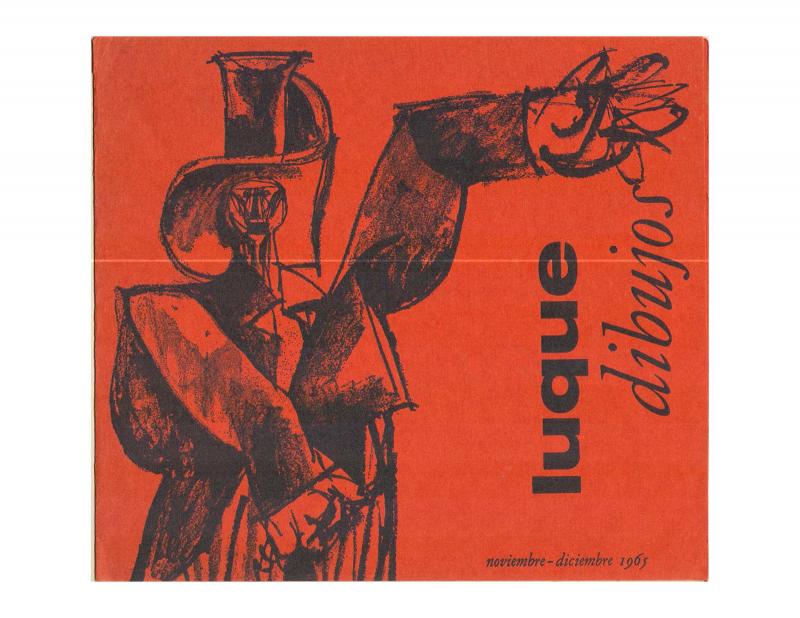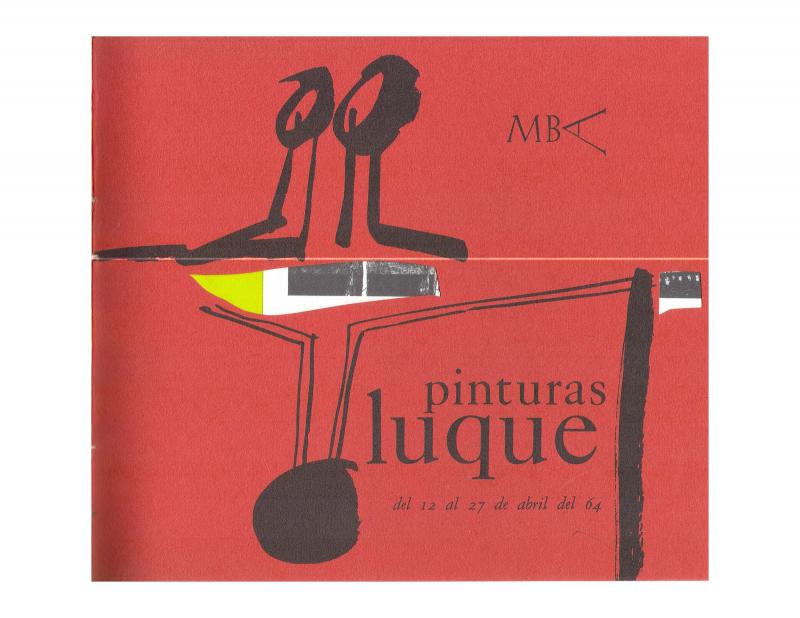This essay by the Spanish artist Ángel Luque (b. 1927), who lived in Venezuela from 1955 until 1967, is written in the form of a manifesto that expresses the intentions of the Informalist movement, and includes a very sharp criticism of both contemporary art and society in general. As distinct from other Informalist artists—such as Elsa Gramcko and José María Cruxent—the essay suggests that Luque identifies totally with the principles of the Informalist movement. It is not often that an artist expresses himself quite so sincerely and effusively at his first one-man show outside of his native country. According to Luque, art is drifting away from its true nature and purpose, and is increasingly being treated as a business. In his essay, he states that art is a reflection of the defects of human society, and sees Informalism as a “necessary defecation” that will “cleanse” art. He strongly criticizes Piet Mondrian’s work, which he describes as an aseptic climax of a mechanical form of art. On the other hand, Luque identifies his own Informalist art as rebellious, seditious, and critical, profoundly influenced by a critique of capitalism, mainly because one of the goals of Informalism, which he himself advocated, was the total devaluation of the object; Informalism, therefore, had emerged as a redeeming force to rescue the true meaning of art.
This essay is essential reading for those who would understand the social—rather than merely philosophical and artistic—tenets of Informalism. Also of interest is the quote from the Manifiesto N° 1 issued by El Techo de la Ballena group in Caracas, since Luque joined the group the following year and was a member until 1964. El Techo de la Ballena was one of the most important and radical groups in the Venezuelan artistic avant-garde in the 1960s.
Luque provides complementary information about himself in an essay without title published in Luque. Dibujos, the catalogue for his exhibition at the Museo de Bellas Artes de Caracas in 1965 [see doc. no. 1156779]. In addition, Luque discusses his pictorial commitment to social causes in his essay in the catalogue Pinturas. Luque [doc. no. 1156720].


